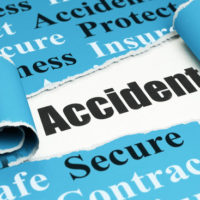Adequate Security And Landowner Duty

In the wake of yet another serious mass shooting in the Sunshine State, the spotlight is once again on the owner’s inadequate security as a possible cause.
One advocacy group called airports “soft targets” that “are naked and totally unprotected.” To avoid infringement on Second Amendment rights, the Transportation Security Agency allows passengers to place guns in checked baggage. Furthermore, baggage claim areas, like the location of the latest airport shooting, are normally outside the airport’s security perimeter. The Fort Lauderdale shooting is actually the third such incident in the last three years.
Roughly six months ago, a gunman shot dozens of people in an Orlando nightclub, and lax security may have contributed to the severity of that incident.
Landowner Liability
In situations like these, it is critically important to identify and address the root causes. If Broward County officials did not fulfill their duty to provide adequate airport security, and if no one takes corrective action in the form of a negligence lawsuit, the stage is set for yet another tragedy.
In Florida, all businessowners and landowners have a duty to provide reasonably safe premises, and the extent of that responsibility largely depends on the victim’s legal status.
- Trespassers: The owner has essentially no duty to provide a safe environment for persons who had no particular purpose for their visits and no permission to be on the premises.
- Uninvited Licensees: Similarly, owners owe no duty to party crashers and other uninvited guests, except perhaps under the attractive nuisance doctrine (uninvited children often play in dangerous locations, and owners must provide adequate protection in these situations).
- Invited Licensees: Most social guests are invited licensees, and owners have a limited duty of reasonable care regarding their safety.
- Public Invitees: People at a public airport or other public facility, like a park or government building, are usually public invitees, and owners owe slightly higher duty of care.
- Business Invitees: Owners owe the highest duty to victims who are on the premises for commercial purposes. This label applies even if no money actually changes hands, because window-shoppers, job applicants, salespeople, and other such individuals are usually business invitees.
At a minimum, the duty of care requires owners to warn people in the latter three categories about hazardous conditions, including inadequate security precautions. Furthermore, the owners must have actual or constructive knowledge (known or should have known) about the dangerous condition or circumstances.
Liability for Third Party Crimes
In many circumstances, third-party criminal activity is an independent intervening cause that renders any injury unforeseeable as a matter of law, and therefore the victims cannot recover damages. However, the law is different in Florida, and owners are legally responsible for damages in these cases if:
- The victim was a business invitee, public invitee, or invited licensee, and
- The injury was foreseeable.
A classic example is a night gas station attendant who is injured during a robbery attempt, and the lack of surveillance cameras or other security precautions emboldened the robber to commit the crime.
Reach Out to Aggressive Attorneys
Most visitors have the right to feel safe and be safe on other people’s property. For a free consultation with an experienced personal injury lawyer in Port St. Lucie, contact Eighmie Law Firm, PA. Home and hospital visits are available.
Resources:
ajc.com/business/fort-lauderdale-shooting-raises-questions-about-airport-security/oKxWsLemNXVEat1w1HvV1N/
floridabar.org/divcom/jn/jnjournal01.nsf/Author/F5EDDA415D032B218525767E0071DA90
